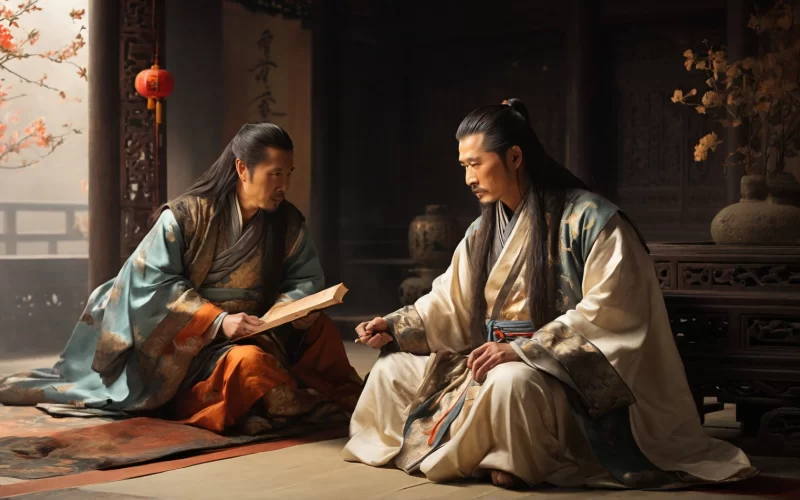Idiom Explanation:
Means get ahead. The original meaning is to put the person head and shoulders above. Later on, it describes to be above the average person or superior.
Pronunciation:
出人头地
chū rén tóu dì
Origin:
宋·欧阳修《与梅圣俞书》:“老夫当避路,放他出一头地也。”
Story:
Su Shi, a famous literary scholar, calligrapher, gourmet and water expert in the Northern Song Dynasty of China. He was born in Meishan, Meizhou. His father, Su Xun, and his brother, Su Zhe, were both famous literary scholars of the Northern Song Dynasty, and were collectively known as the "Three Su", and were included in the "Eight Great Men of the Tang and Song Dynasties".
As a child, Su Shi was gifted, and was praised by people because he read a lot and recognized a lot of words, and he wrote well. In the sound of praise, Su Shi could not help but feel a little drifting.
One day, he wrote a couplet on the door of his study to show his talent, and the couplet read: "Read all the books on earth and know all the words in the world. After the couplet was posted, an old man came to Su Shi's house to "ask for advice" and asked him to recognize the book he brought with him, which was full of words created by Shi Zhou Dynasty. Su Shi began to be full of care, very proud, but took a look at the book, the book does not know any of the words, which is a blow to the proud and complacent Su Shi, he suddenly blushed and had to apologize to the old man. The old man didn't say anything, so he smiled and left. Only then did Su Shi feel that he was too proud, so he added two words to the couplet in front of the study door to elevate the state of mind, and a couplet with great ambition was displayed in front of people's eyes: "Aspire to read all the books in the world, be angry and know all the words in the world."
After that, Su Shi strove to study. When he was twenty years old, he had already learned a great deal about the ancient and modern world, so he took the examination in the capital together with his younger brother Su Zhe. The examiner of that year was Ouyang Xiu, a Hanlin bachelor. Ouyang Xiu was disgusted by the weird and strange style of writing in the literary world at that time and did not accept any of them. However, when he saw an essay on "Punishment, Reward and Loyalty", he was very happy and prepared to take the first place. Since the test papers were sealed, Ouyang Xiu did not know who wrote the essay. After thinking about it, he thought that there might not be anyone else who could write such an essay other than his disciple Zeng Gong. In order to avoid suspicion, Ouyang Xiu awarded Su Shi's paper as the second. When the list was announced, Ouyang Xiu realized that the person who wrote the good article was not Zeng Gong, but a young man named Su Shi, so he was a little upset.
When Ouyang Xiu learned that "The Essay on Penal Reward and Loyalty" was not written by his disciple Zeng Gong, but by Su Shi, who had just started his career, he felt a little sorry for Su Shi, who had been placed second. Then he saw the articles sent by Su Shi later, each with great talent, and he was even more impressed. So he wrote to Mei Yaochen, who had a high reputation at that time, saying, "Su Shi's essays are really good, so I should give way and make him a head above me." This is the origin of the idiom "to make a name for oneself". At that time, people who heard about this were not convinced, thinking that Ouyang Xiu had exaggerated Su Shi's talent, but they were convinced only after they saw Su Shi's writings later.
Later, Su Shi received guidance from Ouyang Xiu and other famous writers, and his writings became better and better, and later he really made a name for himself, and was called the "Eight Great Men of Tang and Song" together with Ouyang Xiu and others.
Similar Idioms:
- 乐而忘返












